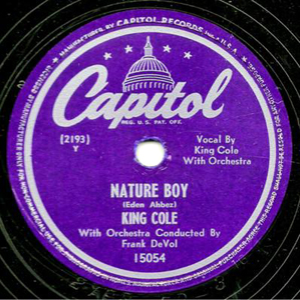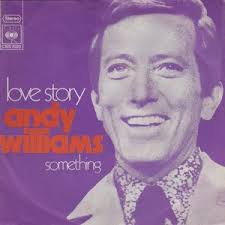
Anthony Dominick Benedetto, known professionally as Tony Bennett, was an American jazz and traditional pop singer. He received many accolades, including 20 Grammy Awards, a Lifetime Achievement Award, and two Primetime Emmy Awards. Bennett was named an NEA Jazz Master and a Kennedy Center Honoree and founded the Frank Sinatra School of the Arts in Astoria, Queens, New York. He sold more than 50 million records worldwide and earned a star on the Hollywood Walk of Fame.
"Sing, You Sinners" is a popular song with music by W. Franke Harling and lyrics by Sam Coslow. In 1930 it was used in the film Honey starring Lillian Roth. The Bing Crosby 1938 Paramount musical Sing You Sinners also included the song in the title credits.
"Love for Sale" is a song by Cole Porter introduced by Kathryn Crawford in the musical The New Yorkers, which opened on Broadway on December 8, 1930 and closed in May 1931 after 168 performances. The song is written from the viewpoint of a prostitute advertising "love for sale".
"Young at Heart" is a pop standard ballad with music by Johnny Richards and lyrics by Carolyn Leigh.
"Because of You" is a popular song written by Arthur Hammerstein and Dudley Wilkinson in 1940. It was first recorded by Larry Clinton and His Orchestra on December 12, 1940, and was released March 28, 1941 on Bluebird 11094. It charted for one week and ranked number 95 in the 1941 year-end list.

"Nature Boy" is a song first recorded by American jazz singer Nat King Cole. It was released on March 29, 1948, as a single by Capitol Records, and later appeared on the album, The Nat King Cole Story. It was written by eden ahbez as a tribute to Bill Pester, who practiced the Naturmensch and Lebensreform philosophies adopted by ahbez. The lyrics of the song relate to a 1940s Los Angeles-based group called "Nature Boys", a subculture of proto-hippies of which ahbez was a member.
"It's De-Lovely" is one of Cole Porter's hit songs, originally appearing in his 1936 musical, Red Hot and Blue. It was introduced by Ethel Merman and Bob Hope. The song was later used in the musical Anything Goes, first appearing in the 1956 film version ; in the 1962 revival where it was sung by Hal Linden and Barbara Lang, and in the 2004 biographical film De-Lovely, where it was performed by Robbie Williams.
"So Far" is a show tune from the 1947 Rodgers and Hammerstein musical Allegro when it was introduced by the character "Beulah" played by Gloria Wills.

"(Where Do I Begin?) Love Story" is a popular song published in 1970, with music by Francis Lai and lyrics by Carl Sigman. The song was first introduced as an instrumental theme in the 1970 film Love Story after the film's distributor, Paramount Pictures, rejected the first set of lyrics that were written. Andy Williams eventually recorded the new lyrics and took the song to number nine on Billboard magazine's Hot 100 and number one on their Easy Listening chart.
"Who Can I Turn To?" (alternatively titled "Who Can I Turn To (When Nobody Needs Me)") is a song written by English composer-lyricists Leslie Bricusse and Anthony Newley and first published in 1964.
"But Beautiful" is a popular song with music written by Jimmy Van Heusen, the lyrics by Johnny Burke. The song was published in 1947.

"I Can't Give You Anything but Love, Baby" is an American popular song and jazz standard by Jimmy McHugh (music) and Dorothy Fields (lyrics). The song was introduced by Adelaide Hall at Les Ambassadeurs Club in New York in January 1928 in Lew Leslie's Blackbird Revue, which opened on Broadway later that year as the highly successful Blackbirds of 1928, wherein it was performed by Adelaide Hall, Aida Ward, and Willard McLean.
"Anything Goes" is a song written by Cole Porter for his 1934 musical of the same name. Many of the lyrics include humorous references to figures of scandal and gossip from Depression-era high society.
"I Wished on the Moon" is a song composed by Ralph Rainger, with lyrics by Dorothy Parker. Bing Crosby sang the song in The Big Broadcast of 1936.
"The Lady's in Love with You" is a popular song which was written by Burton Lane (music) and by Frank Loesser (lyrics). The song was published in 1939 and introduced in the film "Some Like It Hot" (1939) when it was sung by Bob Hope and Shirley Ross. Ms Ross also sang it in the film with Gene Krupa and His Band. The song was sung by Tony Bennett at his final concerts, at Radio City Music Hall, in 2021.
"Do I Love You?" is a 1939 popular song written by Cole Porter, for his musical Du Barry Was a Lady, where it was introduced by Ronald Graham and Ethel Merman.
"Alone Together" is a song composed by Arthur Schwartz with lyrics by Howard Dietz. It was introduced in the Broadway musical Flying Colors in 1932 by Jean Sargent.
"I Wonder" is a 1944 song written and originally performed by Pvt. Cecil Gant. The original version was released on the Bronze label, before Gant re-recorded it for the Gilt-Edge label in Los Angeles. The record made it to number one on the Juke Box Race Records chart and was Pvt. Gant's most successful release. In February 1945, pianist, Roosevelt Sykes hit number one with his version of the song. Roosevelt Sykes version is notable in that it replaced Pvt. Gant's version, at number one on the Juke Box Race Records chart.
"Are You Havin' Any Fun?" is a song with lyrics by Jack Yellen and music by Sammy Fain. It featured in the Broadway review series George White's Scandals in 1939. A popular recording in 1939 was by Tommy Dorsey and His Orchestra with vocals by Edythe Wright.

Cheek to Cheek is the first collaborative album by American singers Tony Bennett and Lady Gaga, released on September 19, 2014, by Columbia and Interscope Records. It is Bennett's fifty-eighth studio album, and Gaga's fourth. The two first met at the Robin Hood Foundation gala in New York City in 2011, and later recorded a rendition of "The Lady Is a Tramp" together, after which they began discussing plans of working on a jazz project. Cheek to Cheek consists of jazz standards by popular composers such as George Gershwin, Cole Porter, Jerome Kern, and Irving Berlin. It was inspired by Bennett and Gaga's desire to introduce the songs to a younger generation, since they believed these tracks have a universal appeal.




